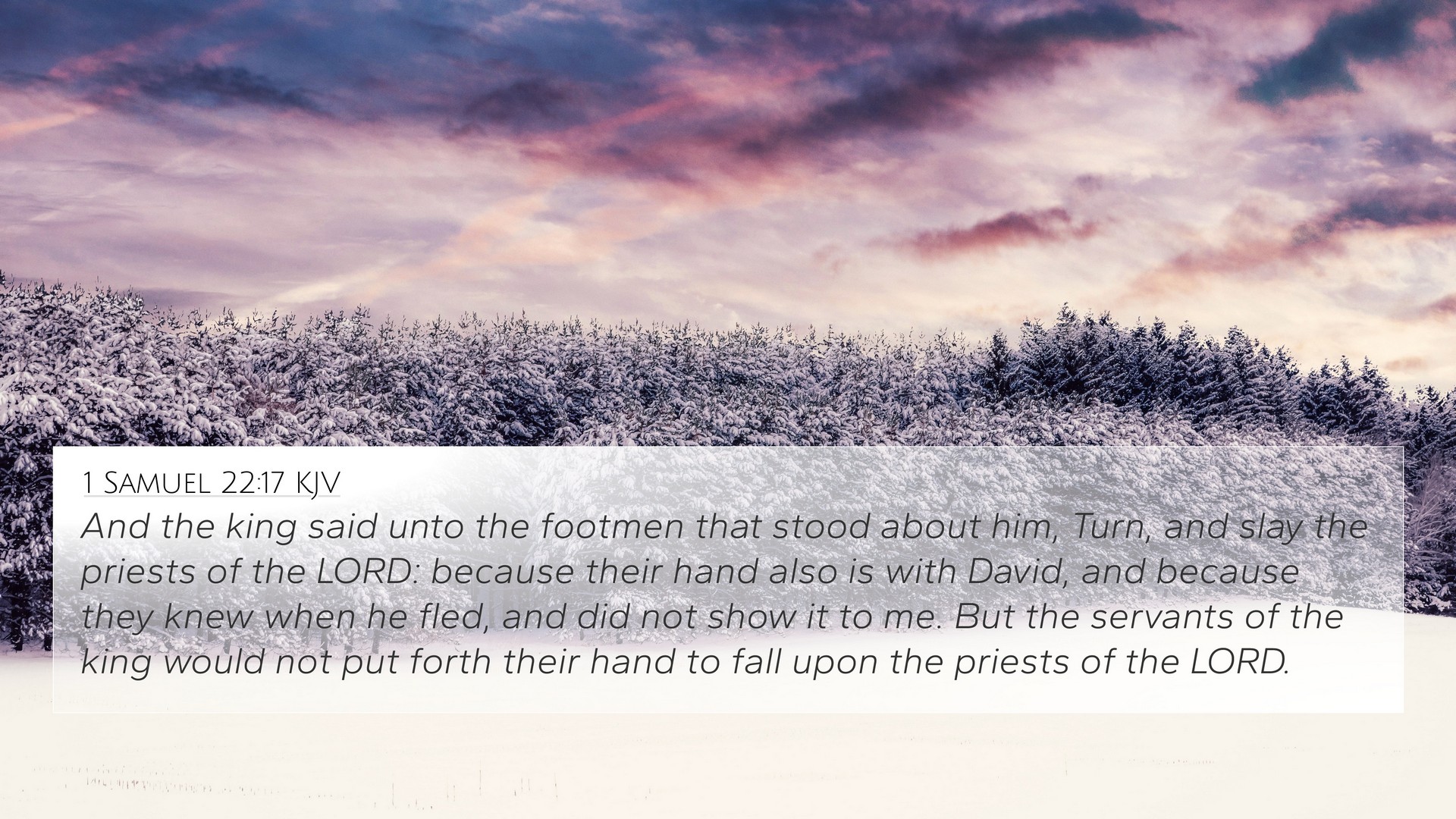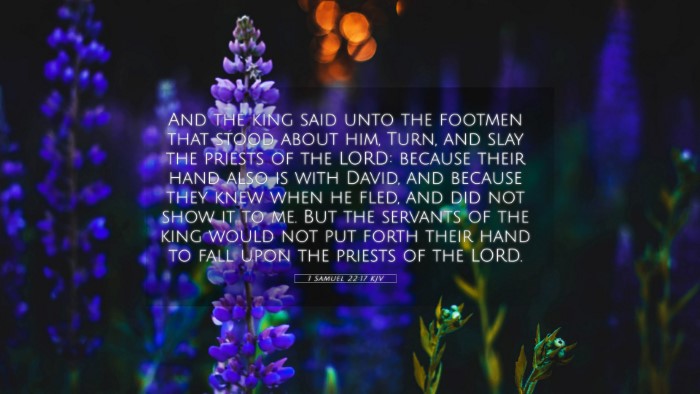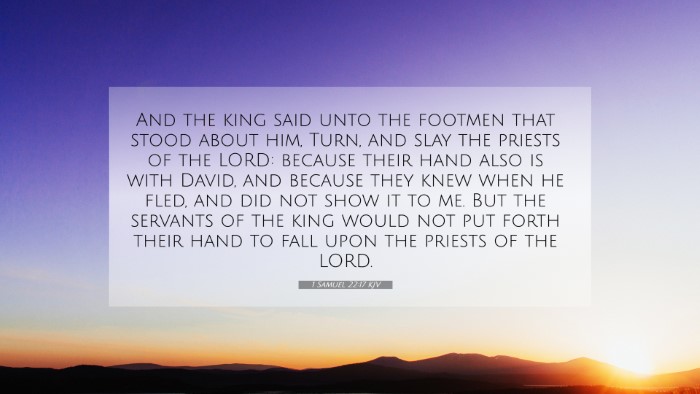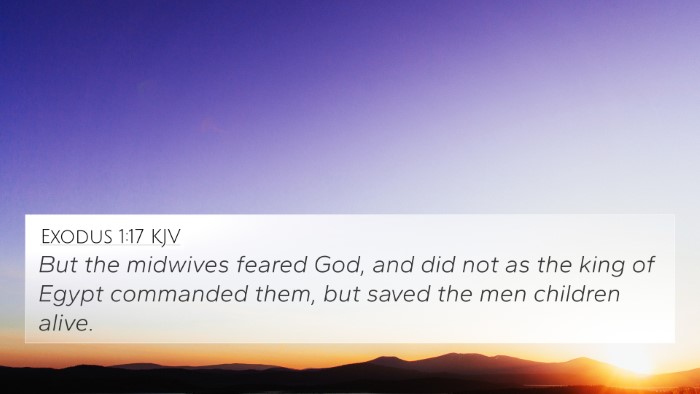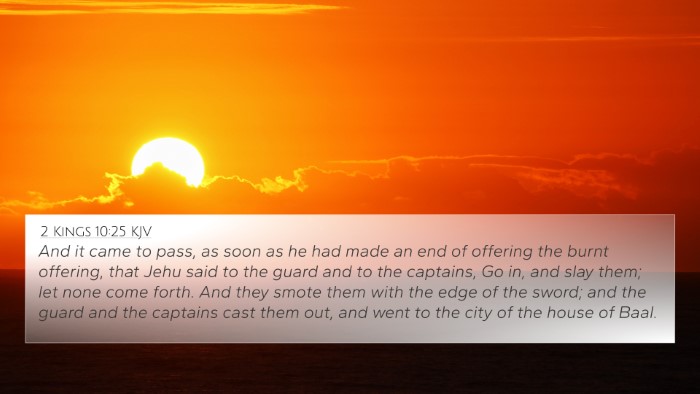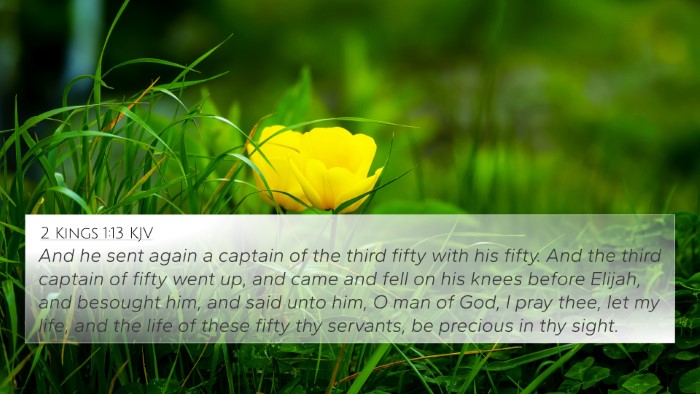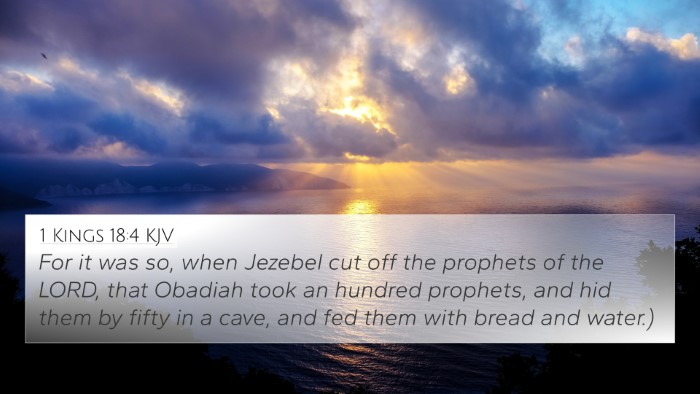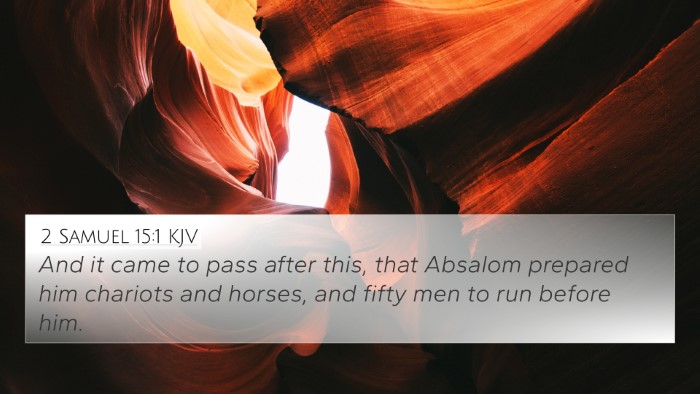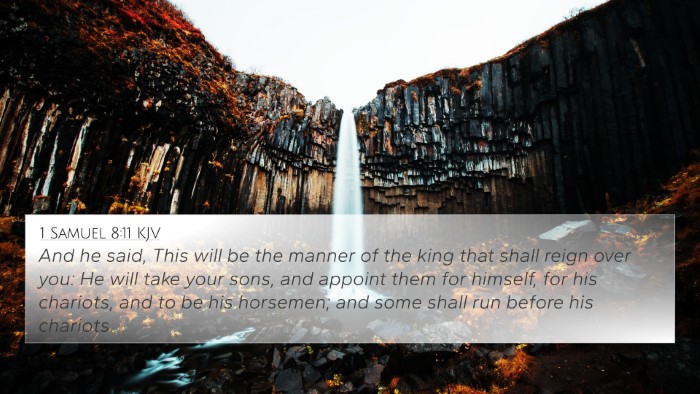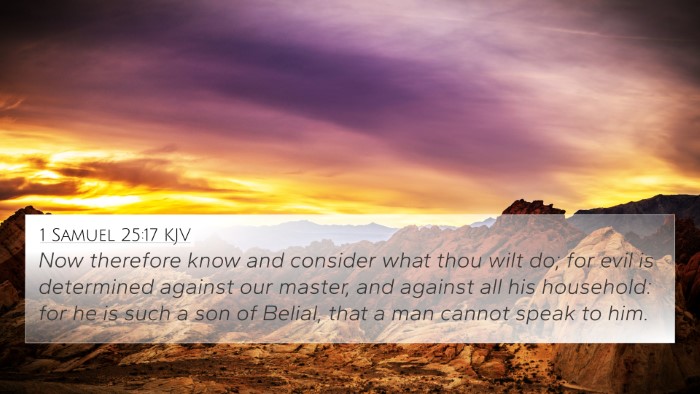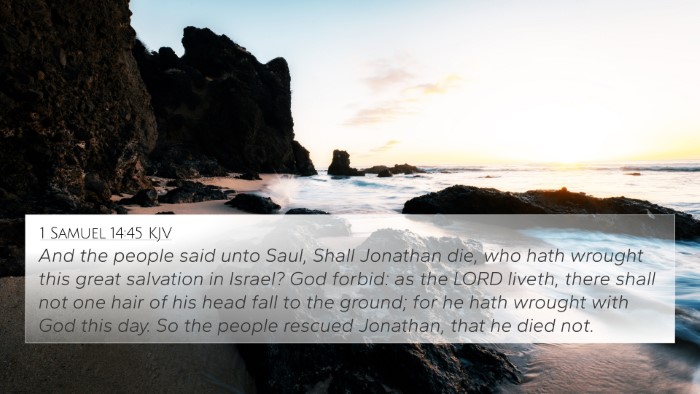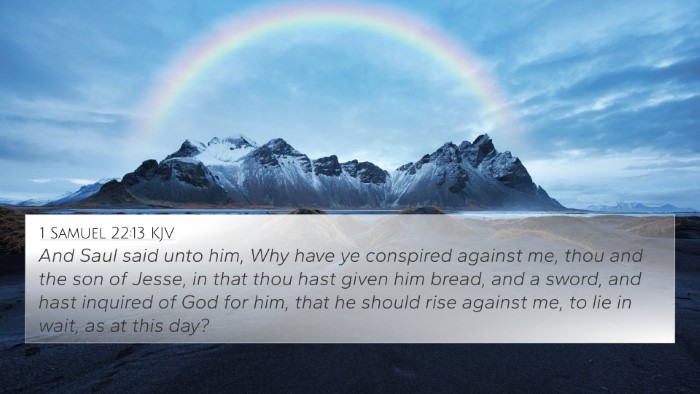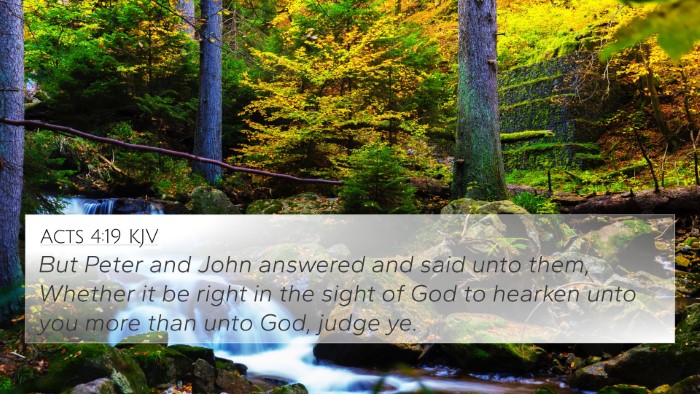Understanding 1 Samuel 22:17
Bible Verse: 1 Samuel 22:17 - "And the king said to the guards who stood about him, 'Turn and kill the priests of the Lord, because their hand also is with David, and because they knew when he fled and did not reveal it to me.' But the servants of the king would not put out their hands to strike the priests of the Lord."
Summarized Meaning & Commentary Insights
This verse marks a significant moment in the narrative of David and Saul, illustrating the tension between loyalty to God and the potential consequences of that loyalty within a tumultuous leadership context. In this poignant episode, King Saul commands his guards to execute the priests of Nob, seeing them as complicit in David's fleeing. However, his guards refuse to carry out such an evil deed against the Lord's anointed priests, highlighting a moral stand against the king's order.
Key Themes and Insights:
- The Corruption of Power: Saul's command reflects how power can corrupt individuals, leading them to commit heinous acts against those who serve God.
- Loyalty of David's Followers: The refusal of Saul's guards to kill the priests demonstrates the deep loyalty of David's followers and a recognition of God's anointed servants.
- Divine Protection: Despite the danger, there is an implied protection from God over David’s cause and over those aligned with him.
- Faith and Obedience: The actions of the guards illustrate the tension between obedience to earthly rulers and adherence to God’s commands.
- Moral Dilemmas: This narrative invites readers to contemplate the complexities of moral choices within contexts of authoritarian rule.
Bible Cross-References
This verse connects to several other scripture passages that help deepen the understanding of the themes presented:
- 1 Samuel 19:10: Saul attempts to kill David, showing the ongoing danger to David.
- 1 Samuel 21:1-6: David receives sustenance from Ahimelech the priest, setting the stage for the ensuing tragedy.
- Matthew 12:4: Jesus references the unrecorded actions of the priests when David was in need, denoting their sacred duty and priorities over literal law observance.
- Hebrews 5:4: The significance of priesthood is elevated, as it is given by God, not man, maintaining the sanctity of priestly roles.
- Psalm 52:1-5: A reflection on the fate of those who misuse power, similar to Saul.
- Proverbs 17:15: The folly of justifying the unjust, applicable to Saul's actions toward the priests.
- Romans 13:1: The principle of submission to governing authorities, contrasted by the priests’ moral stand.
Connections Between Bible Verses
The narrative in 1 Samuel 22:17 provides a comprehensive backdrop for understanding the significantly profound impact of divinely chosen leadership, moral choices, and the consequences of political power:
- Relating to 1 Chronicles 10:13-14: Saul's death is attributed to his disobedience to God, reinforcing the theme of divine judgment against unfaithful leaders.
- Linking with John 15:20: The cost of discipleship is echoed, where followers of God may face persecution for their faith.
Thematic Bible Verse Connections
In exploring the themes within 1 Samuel 22:17, various other scriptures resonate with similar discussions of power, ethics, and the relationship between God and His chosen:
- Acts 4:19: Peter and John's stance against earthly authorities exemplifies a divine loyalty that prevails over human laws.
- Daniel 3:16-18: Shadrach, Meshach, and Abednego’s refusal to worship the golden statue illustrates unwavering faith amidst threat of death.
- Revelation 6:9-11: The souls of martyrs emphasize the cost some pay for their refusal to compromise on faith and righteousness.
Bible Reference Resources
For those seeking a deeper examination of scripture, consider the following tools and methods:
- Bible Concordance: This resource can help identify similar themes and concepts across multiple scriptures.
- Bible Cross-Reference Guide: A valuable tool for understanding thematic connections between selected verses.
- Bible Cross-Reference System: Methods to systematically analyze and understand intertextual relationships within the Bible.
- Comprehensive Bible Cross-Reference Materials: Collections that help explore the rich inter-Biblical dialogue.
Conclusion
1 Samuel 22:17 serves not only as a historical account but also as a profound reflection on leadership, moral dilemmas, and divine fidelity. By engaging with this verse and its related references, one can uncover the enriched tapestry of faith and obedience that characterizes the Biblical narrative.
